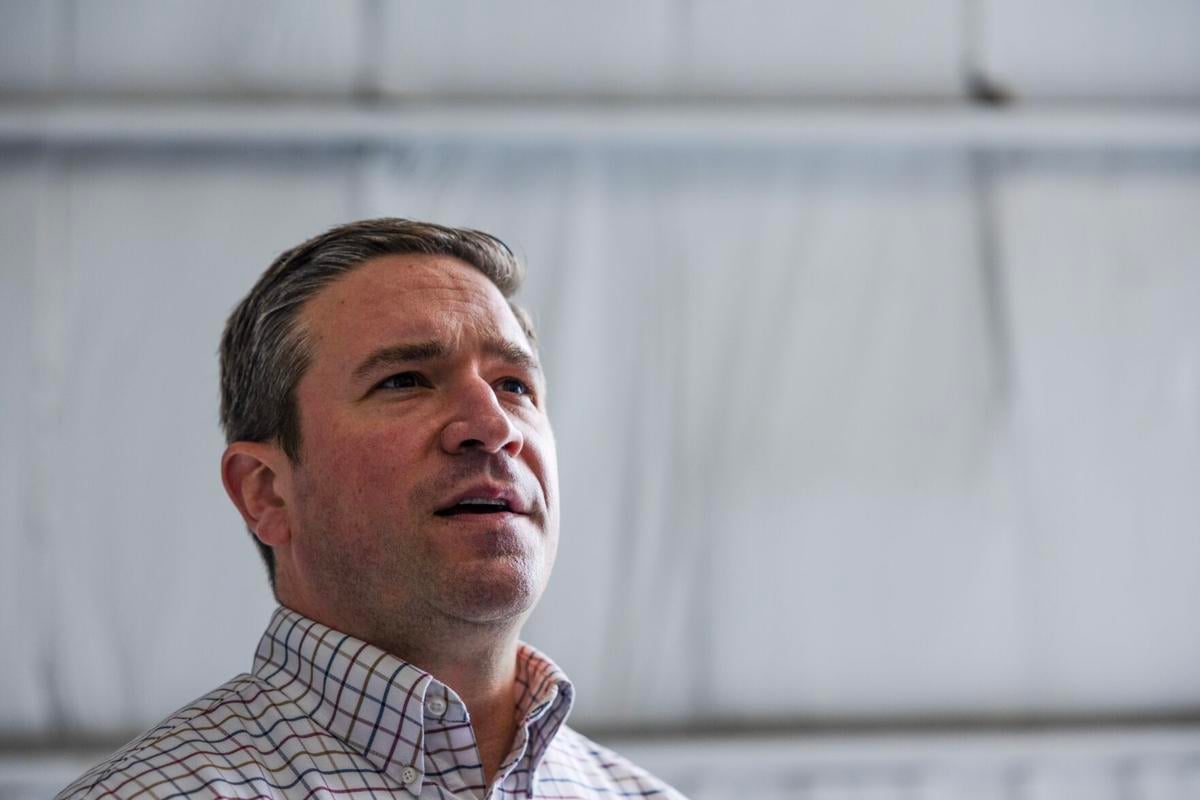JEFFERSON CITY ŌĆö A proposal by the ├█Ķųų▒▓ź attorney general that would weaken social media companiesŌĆÖ control over content on their platforms is facing criticism from First Amendment attorneys.
The rule would require Facebook, Instagram, YouTube and TikTok to offer third-party content moderators to their users, essentially allowing outside companies to police what gets said on the sites. Attorney General Andrew Bailey says he is trying to combat corporate censorship online.
But two ├█Ķųų▒▓ź attorneys predict BaileyŌĆÖs regulation would be struck down in court. The U.S. Supreme Court weighed similar laws in Florida and Texas last year, sending challenges to both laws back to lower courts for further action.
ŌĆ£I have no doubt that the court would hold that what Bailey is trying to do violates the First Amendment,ŌĆØ said Gregory Magarian, a law professor at Washington University.
People are also reading…
Magarian said the court last year ŌĆ£essentially said it was going to treat social media platforms in the same way as newspapers,ŌĆØ which have editorial autonomy.
And David Roland, director of litigation for the Freedom Center of ├█Ķųų▒▓ź, a libertarian group promoting open records and free speech, said the Supreme Court said the ŌĆ£government doesnŌĆÖt get to dictate to them how theyŌĆÖre going to host speechŌĆØ on their platforms.
James Lawson, a spokesperson for BaileyŌĆÖs office, said the proposal is a draft and that the rulemaking process ŌĆ£allows for significant stakeholder and public input,ŌĆØ signaling the office would consider revisions.
He also said the proposal follows the path laid out by the Supreme Court in the case in question.
ŌĆ£It has been well documented that big tech social media platforms have time and again suppressed and censored speech which did not fit their agenda,ŌĆØ Lawson said. ŌĆ£This rule puts the controls back into the hands of users to protect both speech and consumer choice.ŌĆØ
BaileyŌĆÖs proposal covers social media platforms with at least 50 million distinct daily users in the United States per calendar month. The attorney generalŌĆÖs office said only Facebook, Instagram, YouTube and TikTok currently meet the definition.
Under the rule, the social media platforms would need to offer new users the option to choose an alternative moderator, from outside of their companies, and would need to ask again at least every six months.
The companies currently have internal moderators.
Meta, the owner of Facebook and Instagram, declined to comment for this story. Neither YouTube nor TikTok responded to requests for comment.
Social media companies sue Florida, Texas
BaileyŌĆÖs move is the latest salvo in a conservative offensive against large social media companies, which Republicans have for years accused of bias against them.
and ŌĆś laws regulating social media content moderation both followed President Donald TrumpŌĆÖs suspension from Facebook and Twitter after the Jan. 6, 2021, storming of the U.S. Capitol.
Republicans have also accused platforms of suppressing certain content.
Last year, Meta CEO Mark Zuckerberg that the Biden administration ŌĆ£repeatedly pressured our teams for months to censor certain COVID-19 content,ŌĆØ including what the White House called misinformation about the coronavirus and vaccines, Reuters reported then.
In the Supreme Court case, NetChoice v. Moody, trade group NetChoice ŌĆö whose roster of clients includes Meta, YouTube and X ŌĆö sued Florida and Texas to overturn the content moderation laws.
The Supreme CourtŌĆÖs decision last year was viewed as a win for the social media companies and free-speech advocates.
In , the majority said the court had repeatedly ŌĆ£barred the government from forcing a private speakerŌĆØ to present views it opposed.
The Texas law barred social media companies from censoring usersŌĆÖ viewpoints; the Florida law made it illegal for the companies to ŌĆ£deplatformŌĆØ candidates for office ŌĆö removing or suspending candidate accounts ŌĆö with fines of $250,000 per day allowed for candidates for statewide office.
Bailey takes a more indirect approach to regulating the platforms by only requiring that alternative moderation services be offered to users.
ŌĆ£What Texas and Florida basically did was to try to say ... Facebook, you canŌĆÖt do content moderation,ŌĆØ Magarian said. ŌĆ£The Supreme Court essentially is telling those states you canŌĆÖt do that. You canŌĆÖt stop the platforms from making editorial decisions.ŌĆØ
Magarian said Bailey can credibly claim heŌĆÖs taking a different approach than the two states by not telling the social media platforms anything about what they can and canŌĆÖt publish.
But the outside content moderator, Magarian said, forces the companies to essentially promote access to content the companies arenŌĆÖt interested in promoting.
NetChoice tunes into ├█Ķųų▒▓ź
Bailey is also citing the Supreme Court opinion to make his case.
His office said the court made clear that ŌĆ£it is critically importantŌĆØ for citizens to have access to information from many sources.
ŌĆ£That is the whole project of the First Amendment,ŌĆØ the opinion said.
The court said governments can ŌĆ£protect that accessŌĆØ by enforcing competition laws, BaileyŌĆÖs office said.
His office said an enormous and increasing proportion of speech occurs on social media, and ŌĆ£nearly all of that speech is subject to complete control by a small handful of powerful actors.ŌĆØ
BaileyŌĆÖs rule blocks the social media companies from controlling content moderation.
But Roland said BaileyŌĆÖs office omitted language from the same ruling that was detrimental to his case.
In the paragraph Bailey quotes from, the court referred to ŌĆö a 1974 opinion that struck down a Florida law forcing newspapers to provide a ŌĆ£right to replyŌĆØ to political candidates.
ŌĆ£However imperfect the private marketplace of ideas,ŌĆØ the court said, ŌĆ£here was a worse proposal ŌĆö the government itself deciding when speech was imbalanced, and then coercing speakers to provide more of some views or less of others.ŌĆØ
Roland predicted BaileyŌĆÖs rule, if it takes effect, will be ŌĆ£dead policy walking.ŌĆØ
And NetChoice is now paying attention to the proposed ├█Ķųų▒▓ź regulation.
A spokesperson for NetChoice said recently that the group would file comments on BaileyŌĆÖs plan as part of a public comment period that ends July 16.
├█Ķųų▒▓ź Attorney General candidates Will Scharf, Republican, and Elad Gross, Democrat, participated in the Federalist Society debate on Monday, June 24, 2024. Here they discuss affirmative action and DEI. Incumbent Attorney General Andrew Bailey did not attend the debate. Video provided by the society; edited by Beth O'Malley

















